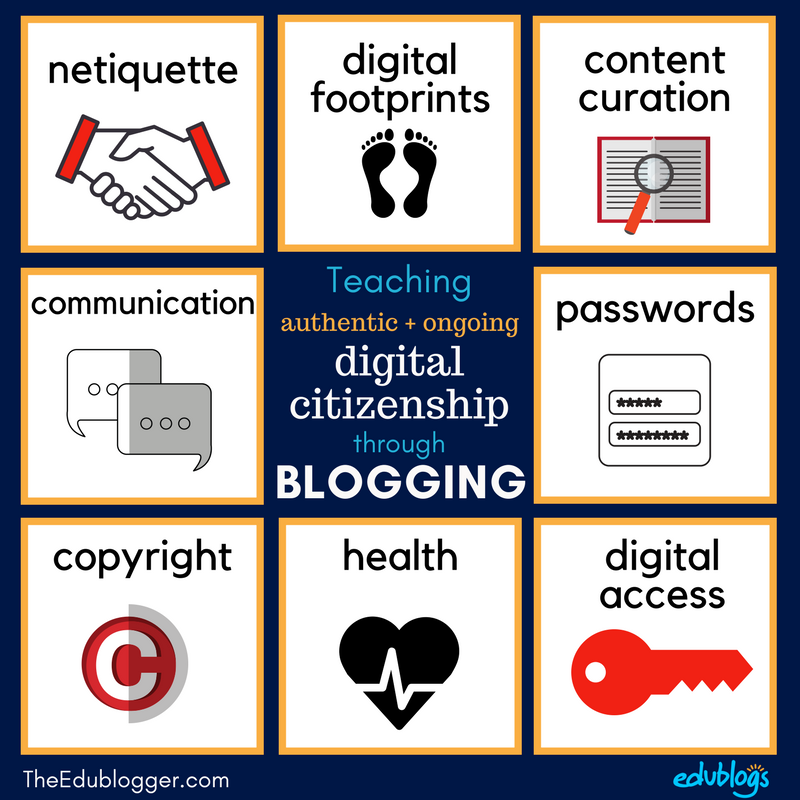The ISTE article Building and Keeping a Positive Digital Identity, published in June 2015, lists some important points that teachers should discuss surrounding digital citizenship:
- Think about what you are posting before you post it. How are people going to react? How might the post be misinterpreted? Is the information you are sharing accurate?
- Discuss security and passwords. Make sure your password is not some information about you that is easy to find online.
- Use the “front page” rule when sharing online. Imagine that whatever you share is on the front page of a newspaper. Do you want everyone to know? When sharing information with someone one-on-one, stop and think whether you can trust them. They can easily share information without your knowledge.
- Assume the things you share last forever. Even if you delete something, nothing is ever truly deleted.
- Careful when downloading certain apps. Read the fine-print. You may be giving them ownership of your pictures or personal information.
I found a blog post by Kathleen Morris that at expands on the topic, called How to Teach Digital Citizenship through Blogging at thedublogger.com. I would likely use her ideas in my own classroom. Asking students to create their own blog is an engaging, active, and ongoing way to think about and apply these discussions. She expands on the ISTE article, recommending touch on the following subjects :
Nettiquette
Digital Footprint
Content Curation and Creativity
Methods of Communication (audio posts, video, etc)
Copywright and Creative Commons
Health and Wellness (technology breaks, focusing)
Passwords
Digital Access.
She includes this handy poster which she encourages people to print and share on their blogs.

I am enrolled in the elementary stream, so my question is, at what age should these concepts be introduced? In her 2018 blog Digital Citizenship for Students & Age-Appropriate Ways to Teach it, Elizabeth Trach suggests that as soon as you take your students online, you should begin the discussion. For the K – 4 grade levels, she recommends discussing:
Stranger Danger
Secret Screen Names
Age-Appropriate Sites.
